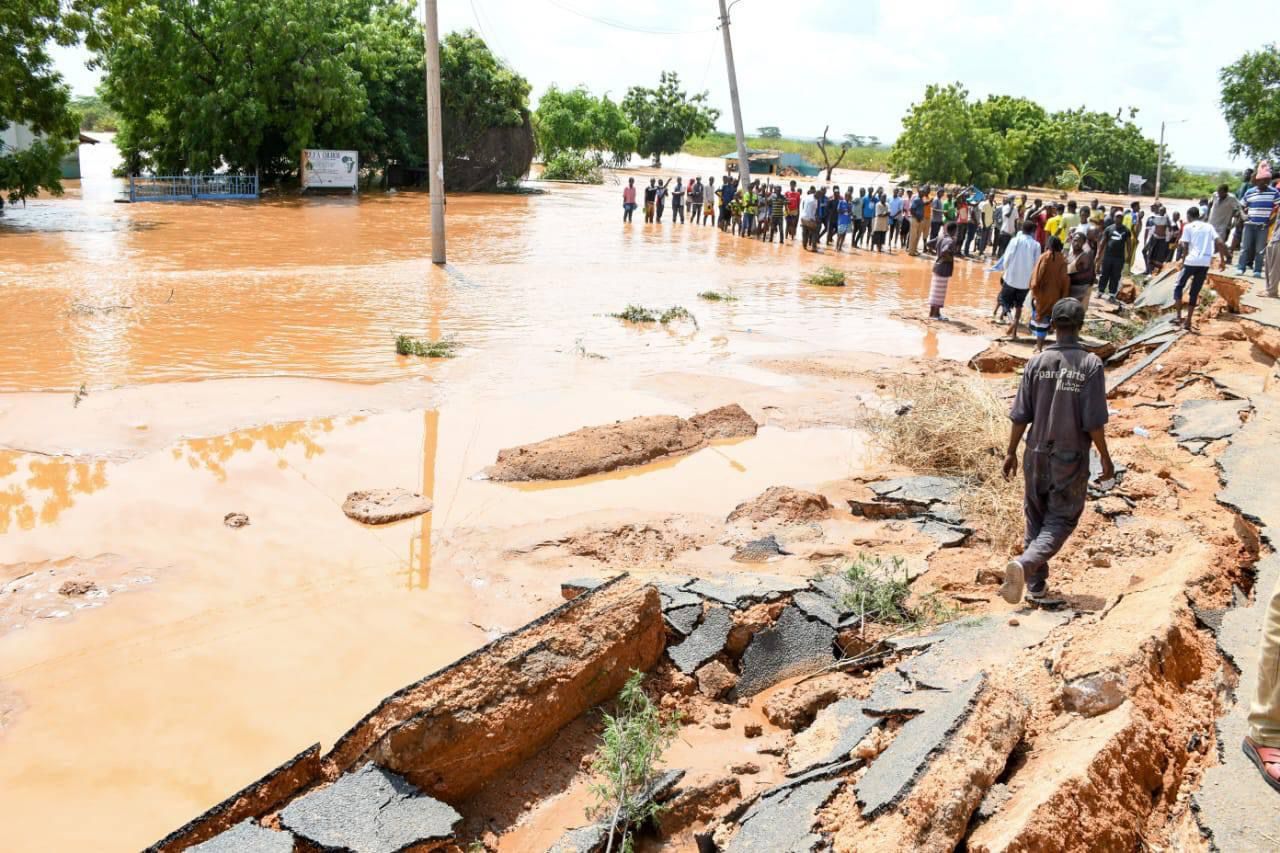Flood crisis: Report reveals extensive damage to SMEs, urges gov't action

To mitigate the aftermath and prevent future catastrophes on businesses, Viffa Consult has urged the government to establish a disaster support fund for SMEs.
A recent report by Viffa Consult has revealed the devastating impact of flooding on Small and Medium Enterprises (SMEs) across various sectors in the country.
The research, conducted in 12 counties, spanning 13 sectors, indicates that a staggering 79 per cent of SMEs have suffered revenue losses exceeding 40 per cent due to the ongoing flooding crisis.
More To Read
- Southeast Asia faces catastrophic floods as tropical storm kills 600 hundred
- SMEs sound alarm over rising failure rates amid investment gaps
- CS Kagwe urges bold reforms in agriculture sector as Intergovernmental Agriculture Forum opens in Naivasha
- Kenya wants China to remove tariffs on coffee, tea, avocados as trade imbalance persists
- City Hall moves to recognise urban farmers in policy review
- CS Kagwe orders integrated pest management to save macadamia nuts
Meanwhile, 21 per cent of the enterprises have reported losses of under 30 per cent.
“21 per cent of SMEs surveyed indicated they experienced revenue loss of between 1 to 30 per cent, 37 per cent of SMEs indicated losses of between 31 to 40 per cent, 32 per cent of SMEs indicated losses of between 41 to 50 per cent and 10 per cent of SMEs indicated losses of over 50 per cent,” reads the report.
According to the report, findings indicated that the top three flood damages to SMEs are business asset damages, loss of business stock and loss in revenue.
SMEs in the agriculture sector were the most affected, recording a loss in revenue stemming from complete crop destruction and damage.
“SMEs in agriculture indicated the loss of revenue due to either losing crops planted entirely or crop damage impeding their ability to make future sales,” reads the report.
Similarly, service-oriented SMEs such as outdoor catering and retail have seen a drastic decline in revenue, averaging at around 70 per cent.
The report also indicated that the workforce sectors have also suffered, with 54 per cent of surveyed SMEs stating that up to 15 employees were adversely impacted.
Additionally, 23 per cent reported 16 to 25 employees affected, and 18 per cent saw 26 to 50 employees suffer, while five per cent noted that more than 50 employees were impacted.
To mitigate the aftermath and prevent future catastrophes on businesses, Viffa Consult has urged the government to establish a disaster support fund for SMEs.
“The government and stakeholders should conduct a thorough evaluation of their actions during and after floods to identify areas for improvement, especially regarding budget allocation and utilisation at national and county levels,” reads the report.
The government has also been directed to implement a comprehensive water harvesting plan, particularly in arid and semi-arid lands (ASAL).
“It is vital to prevent drought conditions immediately following floods, considering that over 80 per cent of Kenyan lands fall under this classification. The government also needs to review the positioning of dams, especially in ASAL regions to avoid overflow to residents and SME premises,” the report states.
The researchers also advised that developing master plans for cities like Nairobi that take into account seasonal and natural waterways can help mitigate flood risks and minimise damage to SMEs and residential areas.
They also called for the development of evacuation policy and plan of action during natural disasters.
Further, Nairobi City County has been urged to rebuild the drainage system to accommodate the current and future populations and revoke all buildings and structures built on riparian land.
The research covered MSME sectors such as Agriculture, Aviation, Business Services, Construction and Housing, Education, Financial Services, Hospitality, Healthcare, Mining, Tourism and Travel, Manufacturing, Transport and Retail.
Sampled counties included; Mombasa, Nairobi, Tana River, Garissa, Nakuru, Kilifi, Kajiado, Nyeri, Machakos, Uasin Gishu, Homa Bay and Kisumu.
Top Stories Today












































